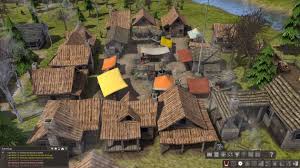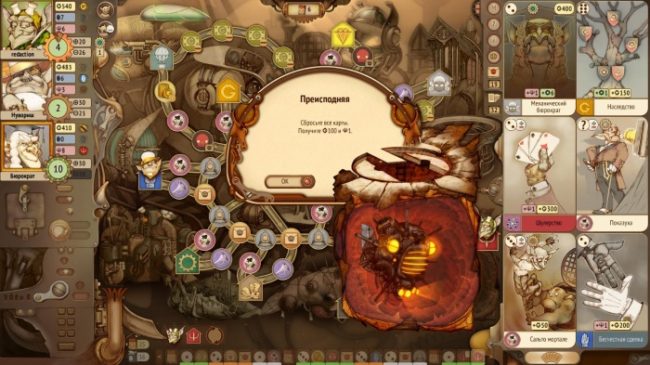Firewood is set in a world reminiscent of ‘1984’, a world in which an oppressive regime rules over the country, a regime that makes use of questionable (if we’re being generous) means to keep it that way. Citizens are downtrodden, largely obedient but there is, of course, a rebellion. One of many, in fact, but might this time be different? In a relatively short time, Frymore manages to set the scene of their first game exceptionally well.
In the present day, you play as an old man who upped sticks after the death of his wife, moving to a cabin in the outskirts of nowhere.
His attempt to live out the rest of his life in peace takes a dark, twisted turn one sodden night. Encouraged by disturbing, animal-headed creatures (hallucinated, or otherwise), we relive memories of his past. Interactions with his wife, his inaction and his fear of the regime all feed into his current mental state and do a good job of telling you the story of his past.
There’s clearly plenty to get in to here, despite the 60 minutes run-time. As well as ‘1984’, Firewood also put me in mind of ‘Donnie Darko’ with its similar imagery and depth beyond the surface.
It’s a shame, then, that the game’s good ideas are let down by its unimaginative mechanics. To my mind, Firewood seems to be a purely narrative experience – what we’ve unfortunately taken to calling ‘walking simulators’ – but in an attempt to make it more of a game, or perhaps to simply increase the running time, Frymore have implemented some basic mechanics.
Some meat on the bones, if you like. A stronger focus on execution of the plot would personally have made this a more enjoyable experience. It’s a tough situation, of course. Make a purely narrative-driven game, and you’ll be criticised for the lack of actual gameplay. Implement boring mechanics, get criticised for that too. I’m certainly guilty of the latter, but I like to think for good reason.
Much like Alone With You, the puzzles are just there – there’s nothing complex or smart or difficult about them and in my opinion, that means that they may as well not be there. To progress from one level to the next, you’ll solve one or two of these puzzles but before you can do so, you’ll need to collect a few items from various rooms which branch from the main corridor of the level.
These are well signposted, you’ll not fail to find them. Littered around the rooms are a number of other items of interest that provide descriptions but nothing beyond.
One final, immersion-breaking problem with the game is the lack of quality regarding the English translation. It’s understandable, Firewood was created in 5 months by two Turkish friends, passionate about gaming, responsible for everything you see. It’s also clear from the missing apostrophes, the sentences that don’t make sense and the general misuse of the English language that it was written by those whose mother tongue isn’t English. Certainly not a crime, but this does, undoubtedly, take you out of the game.
While Firewood fails in certain terms, there is success to be found in its presentation. The 2D pixel art style is well executed and combined with the music makes for a great atmosphere. As the horror elements kick in, you’ll be taken aback early on at how well it works, the jump scares are nicely executed.
There is an over reliance on this, however, and after the second or third scare, you’ll no longer bat an eyelid.
ETHICS POLICY



